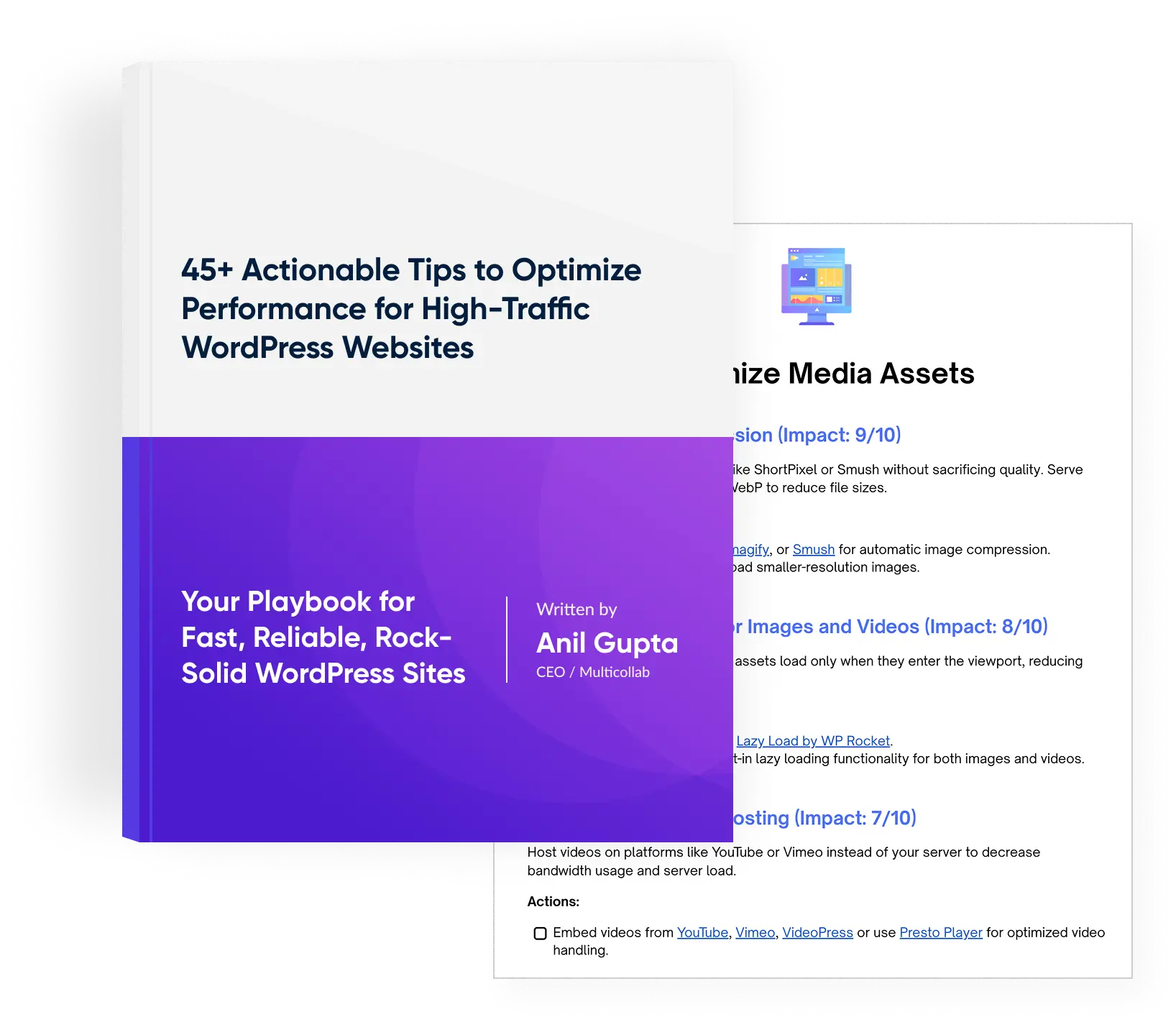Table of Contents
Though most content development teams now work in a distributed workplace, the performance pressure remains the same. The demand for quality content is growing and the rules of SEO are continuously evolving. This poses new challenges that WordPress content development teams must overcome to maintain quality and efficiency.
Let’s start by understanding the roadblocks encountered by WordPress content development teams.
The roadblocks in WordPress content collaboration
The following three roadblocks reduce the efficiency of a remotely distributed WordPress content development team. Let’s take a look at what they are and how they affect the WordPress content publishing workflow.
1. Back and forth of content from Google Docs
During the content review process, there are a lot of edits or suggestions from various collaborators. This causes the content to be moved to the WordPress editor a couple of times, particularly when there are multiple review cycles.
This results in a slower WordPress content publishing workflow. The WordPress blog editors and publishers have to work extra hard to ensure that the version in the Gutenberg editor is the same one that all the collaborators agree upon.
This also leads to long email chains and discussions on messaging apps making the process tedious.
2. Potential security issues
The ironic thing about WordPress content collaboration is that it doesn’t happen on WordPress. Rather, most teams rely on third-party content editing applications such as Google Docs and Microsoft Office 365. This poses a challenge while ensuring the security of organizational data.
To make the process fast, it is always easier to share an entire folder instead of single files. But, sometimes the folders contain data that is confidential. Incidents like this result in unauthorized individuals having access to organizational data.
3. Last-minute edits
The following challenges are often encountered when a piece is considered ready for publication:
- The formatting of the content has to be done again. This means moving paragraphs, resetting title tags, re-uploading the images/multimedia, etc. This adds extra work for the WordPress blog editor during the publication phase.
- Getting feedback on dynamic content such as forms, CTA blocks, and galleries is not possible on these third-party applications. This is challenging considering most blogs and websites use dynamic content to make the onsite experience better for their visitors.
- After the last-minute editing is complete, the piece has to be reviewed by the clients yet another time. Any new change suggested here will have to be also reflected in the Google Doc. The back and forth continues.
The challenges described above affect the quality of content and consume more resources.
Fortunately, all of them are solved by using Multicollab.
How Multicollab makes WordPress content collaboration easy
Multicollab, a WordPress collaboration plugin, enables Google Docs-style collaboration on the WordPress Gutenberg Editor. This helps content collaboration teams to collaborate asynchronously.
The three roadblocks described above are removed by using Multicollab. Here is how it can make your WordPress content collaboration easy.
1. No more back and forth from Google Docs during the content editing process
As the WordPress content collaboration process is shifted to WordPress, there will be no more back and forth from Google Docs during the editorial process. This reduces the number of intermittent steps an editor has to take to publish a content piece, saving time.
Take a look at how easily you can give and receive feedback.
To make your conversations more direct, you can even tag other collaborators, just like you do in Google Docs. Take a look.
This makes each review cycle shorter and reduces chatter in different communication channels such as email and messaging apps. This makes the process less tedious as well.
With Multicollab, Google Docs style collaboration is possible on the WordPress Gutenberg editor which reduces dependency on third-party content collaboration apps. Let’s take a look at the additional benefits of that.
2. Reduced dependency on third-party content collaboration apps
This makes your organizational data more secure. You can conduct the entire content editorial process on the Gutenberg Editor by using Multicollab, the WordPress collaboration plugin. You don’t have to share folders/files in your cloud storage drives to get feedback.
Managing permissions of the collaborators with Multicollab is quite simple. You can give different permissions to different kinds of collaborators with the click of a button. Take a look.
For an added layer of security, you can enable and disable permissions for clients, for example, at the beginning and the end of a review cycle.
After the completion of every review cycle, you can go to the Multicollab dashboard to see all new changes in one place. Take a look.
Having access to all the changes will help you avoid the repetition of the same mistakes. It can be hard to keep track of all the key edits in each review cycle when too many changes are done.
3. Ability to edit dynamic content
Dynamic content blocks help businesses curate personalized experiences for their visitors. Personalization is key in converting more leads and increasing customer satisfaction. But, collaborating on dynamic web content could be challenging.
In most cases, it is long messages, recorded videos, or screen-sharing video calls. For distributed teams, it can be challenging. The tiring experience of exchanging long emails and scheduling a video call when everyone is in different time zones slows things down.
The best solution is to collaborate asynchronously on the Gutenberg Editor as it shows the dynamic content as is. Multicollab, the WordPress content collaboration plugin, makes it all possible. Take a look at how you can collaborate on a dynamic quote block.
Multicollab also allows you to comment on multimedia content. Take a look.
The biggest advantage here is that there is no last-minute editing process that can trigger another review cycle.
Summing up
During WordPress content collaboration, challenges such as moving content from a third-party app, security risks, and last-minute edits reduce the content quality and consume more resources from the development team.
With Multicollab, WordPress content collaboration teams can solve all those issues and look forward to the following benefits:
- Asynchronous collaboration during the content review on WordPress through commenting and tagging.
- Requirement of fewer review cycles by enabling clear end-to-end collaboration.
- Reducing the duration of each review cycle by reducing the dependency on apps like Google Docs.
- No need for long email chains and screen-sharing calls to review dynamic or multimedia content.
- Elimination of last-minute editing process after transferring content from a third-party app to the Gutenberg editor.
Install Multicollab now to make your WordPress content collaboration process faster.







